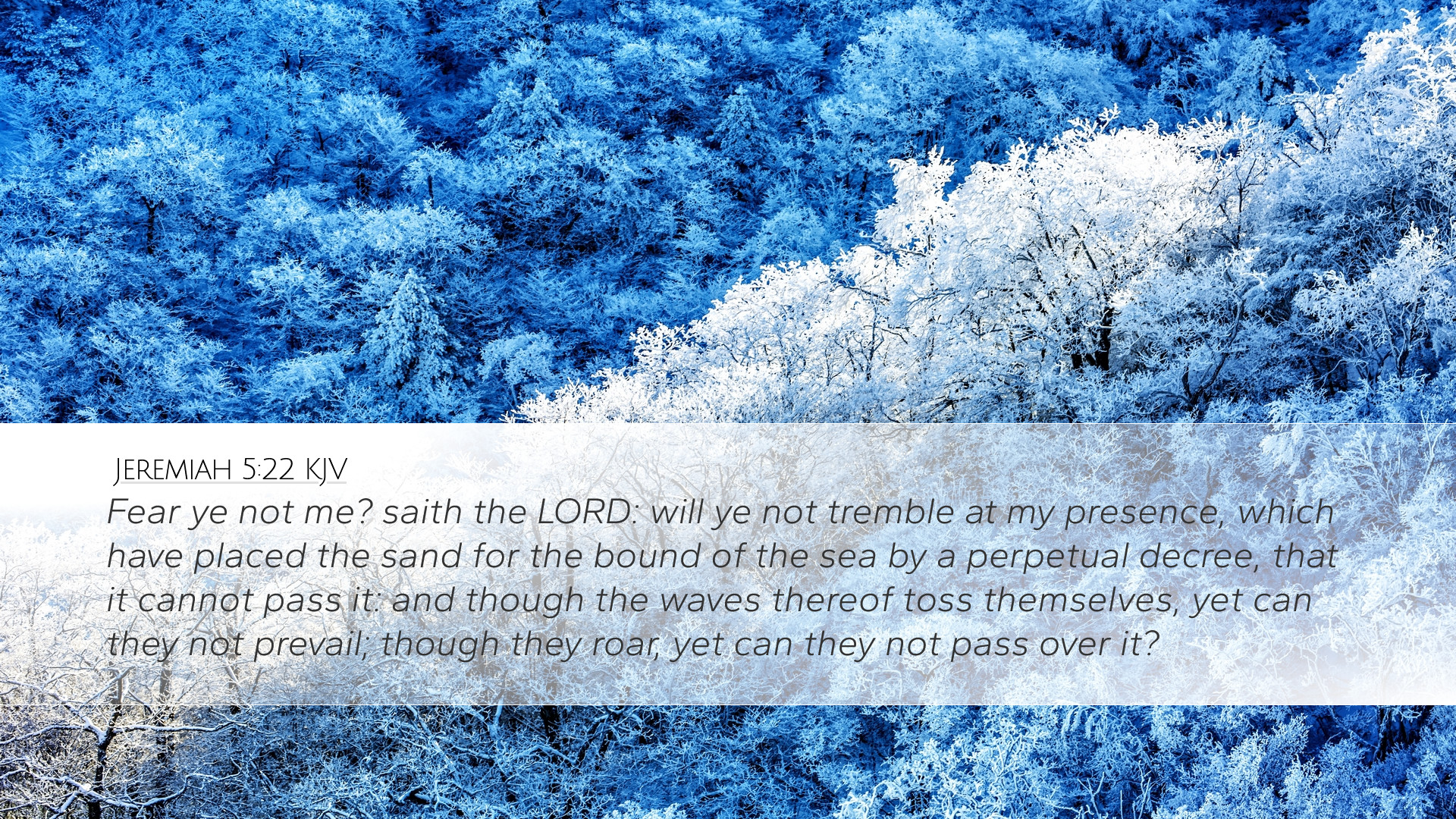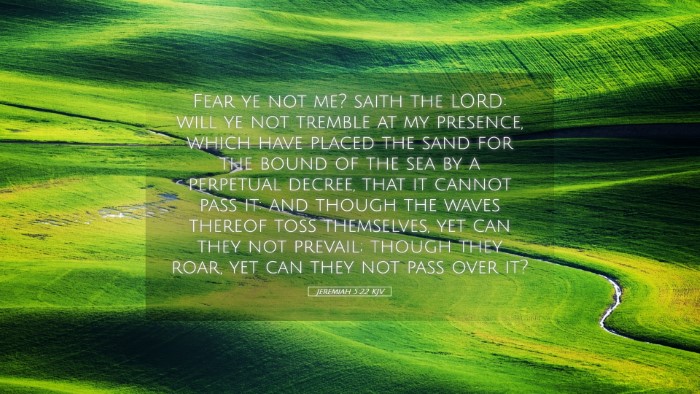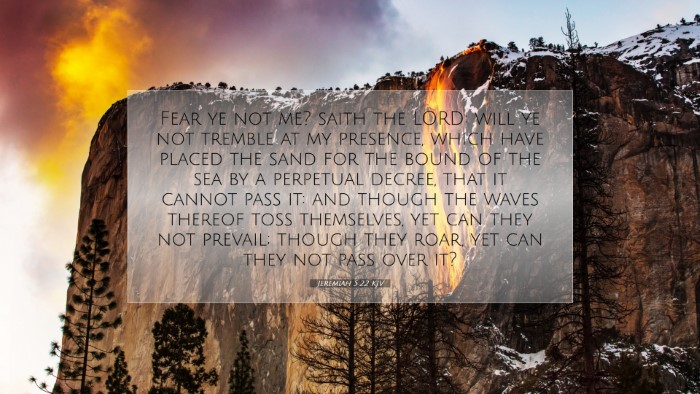Commentary on Jeremiah 5:22
Verse: "Do you not fear Me?" declares the LORD. "Do you not tremble in My presence? I made the sand a boundary for the sea, an everlasting barrier it cannot cross. The waves may roll, but they cannot prevail; they may roar, but they cannot cross it."
Contextual Background
Jeremiah, known as the weeping prophet, was called by God to deliver a message of judgment and repentance to Judah. In this chapter, the Lord addresses the rampant idolatry and injustice prevalent in Jerusalem and challenges the people about their true reverence for Him.
The Call to Fear and Tremble
In this verse, the LORD asks rhetorically whether the people fear Him and tremble at His presence. The fear of God is a recurring theme throughout Scripture, representing a deep respect and reverence. Public domain commentaries provide insights into this fear.
- Matthew Henry: Highlights that true fear of God should lead to obedience and a recognition of His authority over creation. The fear of the Lord is the beginning of wisdom.
- Albert Barnes: Indicates that this fear reflects an awareness of God’s power and holiness. He emphasizes the need for the Israelites to recognize God's sovereignty as evidenced in the creation of natural boundaries.
- Adam Clarke: Discusses the importance of a humble and contrite heart that genuinely approaches God in awe, contrasting this with the pride and arrogance observed in the people of Judah.
God’s Sovereignty Illustrated
The latter part of the verse reinforces God’s sovereign power over creation. His establishment of the sand as a boundary for the sea serves as a metaphor for His authority.
- Matthew Henry: Comments on the imagery of the sea being restrained by the sand, signifying that God sets limits to chaos and disorder, thus reflecting His control over the tumultuous aspects of life.
- Albert Barnes: Notes the unyielding nature of God’s designed boundaries, illustrating that as the waves cannot go beyond their appointed place, so too should humanity recognize its limitations in the face of divine authority.
- Adam Clarke: Elaborates on the nature of God’s creative power, encouraging believers to trust in His providential care that maintains order amidst turmoil.
Spiritual Implications for God’s People
This verse speaks profoundly to both the Israelites of Jeremiah's time and the contemporary believer. It serves as a reminder of our relationship with the Creator and our response to His authority.
- Call to Repentance: The fear of the Lord is portrayed as a catalyst for genuine repentance. As pastors, students, and theologians reflect on the significance of fearing God, they garner motivation for self-examination and communal calls to repentance in their respective ministries.
- Understanding God’s Nature: Recognizing God’s sovereignty leads to a more profound appreciation of His attributes. The commentaries encourage believers to engage with God's power in their daily lives, fostering a deeper trust in His plans.
- Faith Amidst Chaos: Just as God established boundaries for the sea, believers are reminded of the stability that comes from God's promises. This provides assurance that, despite life's challenges, God's presence serves as a protective barrier within the chaos.
The Importance of Reverence in Worship
In light of God’s power and the call to fear Him, the manner in which we approach worship becomes essential. Commentaries draw attention to the significance of preparing one's heart in reverence before the Almighty.
- Matthew Henry: Advocates for an attitude of humility and reverence in worship, suggesting that a true acknowledgment of God’s majesty leads to sincere worship and devotion.
- Albert Barnes: Encourages believers to cultivate a sense of awe in their worship, arguing that such an attitude not only aligns with the nature of God but enhances their relationship with Him.
- Adam Clarke: Reminds the church that worship is both a communal and individual experience, emphasizing that collective awe can lead to transformative encounters with the Divine.
Conclusion
Jeremiah 5:22 serves as a powerful reminder of God's sovereign authority and the appropriate response of humanity. This verse challenges us to cultivate a true fear of God—a fear that reveres Him as the Creator and recognizes our dependence upon His mercy and grace.
A profound understanding of this text encourages pastors, students, and scholars alike to reflect on their positions before the Almighty and ensures that their worship is characterized by reverence, awe, and a longing for repentance and righteousness.


